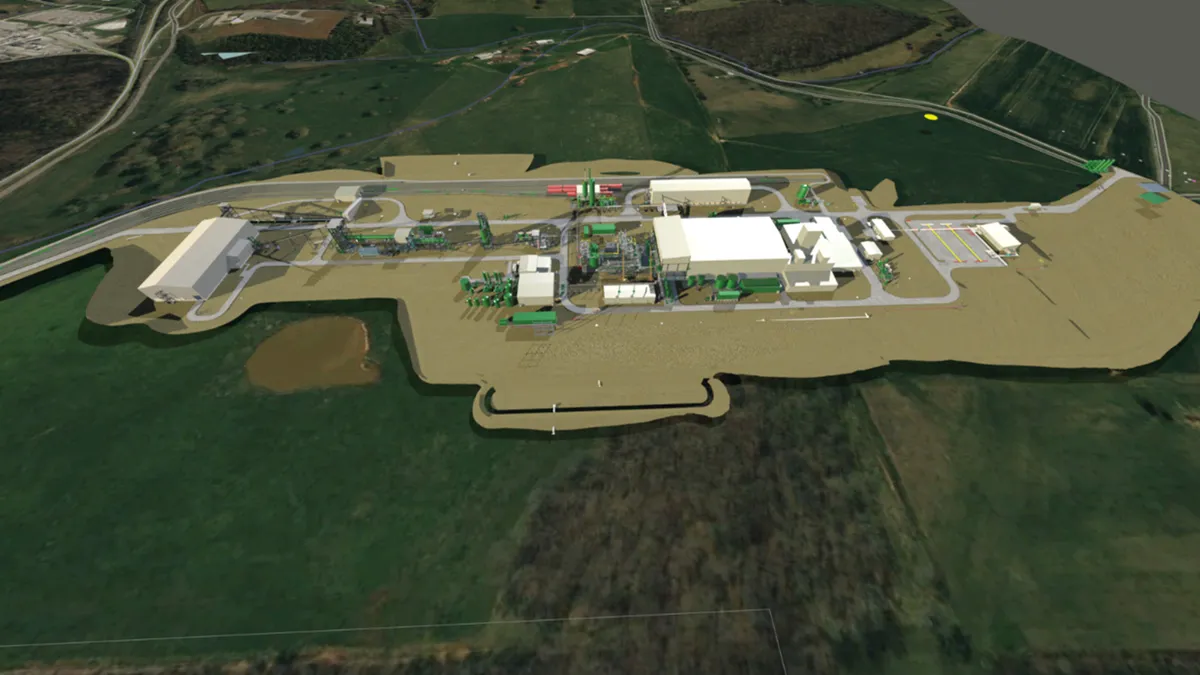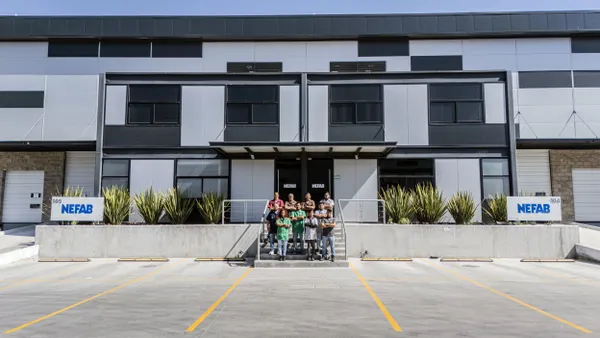Dive Brief:
- Critical mineral producer Piedmont Lithium received its final permit last week needed to begin construction on a lithium production site in Etowah, Tennessee.
- The company received an air permit from the Tennessee Department of Environment and Conservation, which is required for projects producing more than 100 tons air emissions per year.
- The clearance is a major step forward for the $800 million lithium production project, which aims to triple current domestic production levels, the company said. Construction on the site is set to begin next year, with production beginning in 2026.
Dive Insight:
Piedmont announced the selection of Tennessee for the home of the production site last September, touting it as the largest lithium hydroxide plant in the country. The site expects to have a capacity of 30,000 tons per year.
The company completed a feasibility study for the site in April, showing the project had the potential to drive an after-tax net present value of $2.5 billion. Piedmont selected the 275-acre-site for its easy access to infrastructure and rail, road and river transportation, as well as its nearby talent base.
“America’s pro-EV and battery manufacturing policies are providing an advantage to Piedmont at a time when many analysts are projecting lithium shortages to continue into the 2030s,” Piedmont Lithium President and CEO Keith Phillips said in a statement.
It's one of two projects Piedmont is currently launching for lithium production in the U.S.
The company is also building a lithium mine and production facility in North Carolina, which has been under regulatory review by the state's Department of Environmental Quality since 2021. If approved, the site is set to supply automakers such as Tesla with critical minerals.
Other lithium producers are also investing in U.S. capacity with sites in the Carolinas. The region is home to the Carolina Tin-Spodumene Belt, one of the country's richest swaths of lithium hard rock deposits.
Last November, Livent opened a new lithium hydroxide facility in Bessemer City, North Carolina, saying the site would boost the state's lithium output by 50%.
And in March of this year, Albemarle announced plans to build a $1.3 billion lithium production site in Chester County, South Carolina.
Lithium mine and production projects face a lengthy approval process in the U.S. In North Carolina, state and local officials must approve mine permits and applications that cover issues including zoning, emissions, reclamation plans and feasibility studies.
Regulators may ask companies for additional information regarding the site and its plans, as North Carolina officials have for Piedmont at least three times regarding its site. The process is also subject to public comment.
Piedmont's Tennessee project has now cleared its own hurdles, holding all necessary allowances to begin construction.
The company has worked for nearly a year with local officials on permitting, engineering and clearing the site to prepare for EV and battery manufacturing, Piedmont said.
"As demand for lithium hydroxide continues to soar in the U.S., this conversion facility will be key in the domestic effort to reduce reliance on foreign nations for lithium processing,” Phillips said in a statement.












